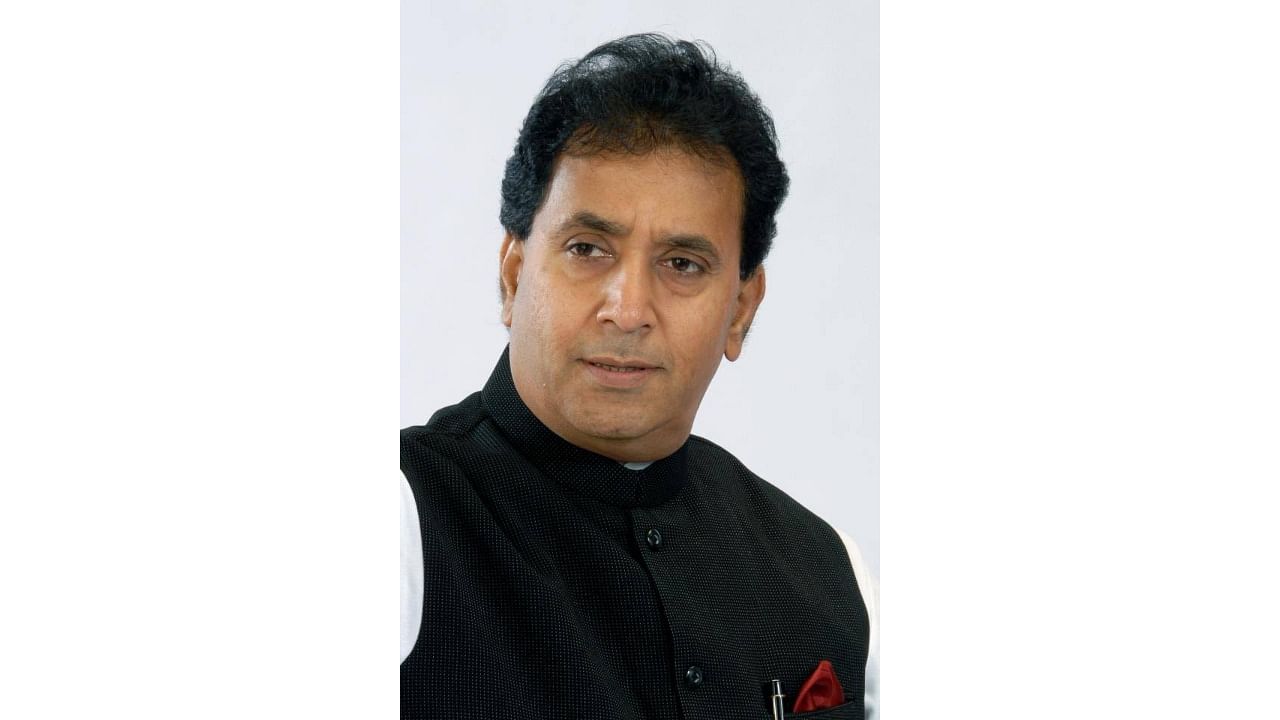
When Shiv Sena spokesman Sanjay Raut termed Anil Deshmukh as an “accidental Home Minister” recently, it made headlines everywhere. It also rankled Deshmukh’s party, the NCP.
There could be a grain of truth in Raut’s claim, for NCP supremo Sharad Pawar did have other choices: his nephew Ajit Pawar, state NCP president Jayant Patil, who had handled the portfolio in the aftermath of 26/11 attacks, and Dilip Walse-Patil, a former Speaker.
The reason Deshmukh, 70, landed the coveted and crucial job, some say, is due to the fact that he is a Pawar loyalist. And being loyal does pay in politics. He is also very close to Pawar’s trouble-shooter and party general secretary, Praful Patel.
But the good times seem to have ended for the suave five-term MLA from Vidarbha, who has an unconventional approach to things.
Popularly known as Anil Babu, Deshmukh is currently facing the biggest challenge of his political career, a crisis that began near Mukesh Ambani’s house and eventually reached the home minister’s doorstep.
Former Mumbai police commissioner Param Bir Singh alleged that Deshmukh had set a “collection target” of Rs 100 crore per month for assistant police inspector Sachin Vaze, who was subsequently arrested in the SUV case and suspended.
The sensational allegations have triggered a major political crisis for the Uddhav Thackeray-led Maha Vikas Aghadi government, with the Modi government seizing the opportunity and parachuting the NIA into the state to probe the case.
Add to it, a string of cases, including one in the Bombay High Court, in which Singh has demanded a CBI probe, and a high-level inquiry committee by Justice Kailash Chandiwal, a retired judge.
He has also been accused of taking cash for police transfers and promotions, after Leader of Opposition and ex-chief minister Devendra Fadnavis, a fellow politician from Nagpur district and Vidarbha region, brought to light a top-secret report.
With multiple crises, the home minister is under siege at the moment.
Deshmukh hails from the village of Vad Vihira near Katol in Nagpur district, where he attended the Katol High school and, later, the College of Agriculture, Nagpur, receiving an M.Sc in Agriculture awarded by Dr. Panjabrao Deshmukh Krishi Vidyapeeth, Akola.
As a young man, he joined the Congress and became a member of Nagpur Zilla Parishad. This was an important moment for Deshmukh’s budding career. When he became the chairman of the ZP, he became known in Maharashtra’s political circles.
The year 1995 was a critical year as he contested as an Independent and joined the Shiv Sena-BJP government. He became the Minister of State for School Education, Information and Public Relations, Sports & Youth Welfare.
In 1999, when Pawar formed the NCP, he made a crucial move, joining the Maratha strongman and being an integral part of the Congress-NCP Democratic Front that ruled the state for 15 years till 2014.
Deshmukh handled a wide range of portfolios: excise, food & drugs administration, (2001-2004), public works (public undertakings) (2004 to 2008), food, civil supplies and consumer protection (2009 -2014).
In 2014, he lost the elections to nephew Ashish Deshmukh, who was then with BJP and now with the Congress, as the BJP stormed to power sweeping aside the Democratic Front government.
But fortunes changed again in 2019, when the crafty Pawar stitched together the Maha Vikas Aghadi government with an unlikely alliance comprising the Congress, NCP, and the Shiv Sena. And Deshmukh was rewarded for his loyalty with the home minister’s post.
He is one of those rare politicians who has served under six chief ministers – Manohar Joshi, Narayan Rane, Vilasrao Deshmukh, Sushilkumar Shinde, Ashok Chavan, Prithviraj Chavan and Uddhav Thackeray.
Deshmukh is no stranger to being in the news and limelight.
It was during his tenure as food and drugs minister that the Maharashtra government imposed a ban on gutka in 2002.
Deshmukh oversaw the completion of the iconic Bandra-Worli sea link when he was the public works department minister. As home minister, he exposed and doggedly pursued the TRP manipulation scandal and ensured the arrest of TV journalist Arnab Goswami in the Anvay Naik suicide case.
During the Covid-induced lockdown, which forced thousands to journey on foot, he gave the police a free hand and appeared on TV, asking cops to apply oil on their lathis and be ready.
On the intervening night of the New Year, he sat in the Pune Police control room and answered calls.
When the corruption allegations by Param Bir Singh surfaced, Pawar termed them “serious” but ruled out Deshmukh’s resignation. The NCP chief stood by his man in his hour of crisis.
In his long political journey from Vidarbha to Mumbai, Deshmukh definitely made some smart choices.
But whether the beleaguered minister will emerge unscathed from the current crises and have the last laugh (Deshmukh is said to have a great sense of humour) is something to be seen.